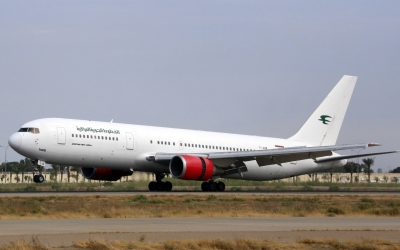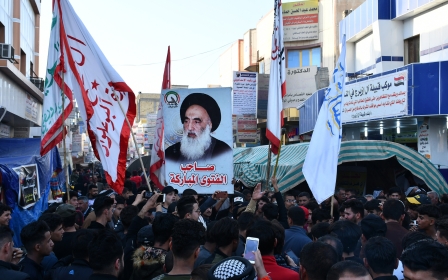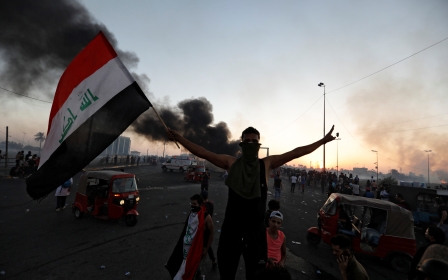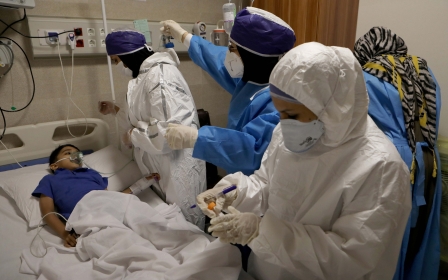Coronavirus: Shia pilgrims gather in Iraq's Karbala despite calls to avoid gatherings
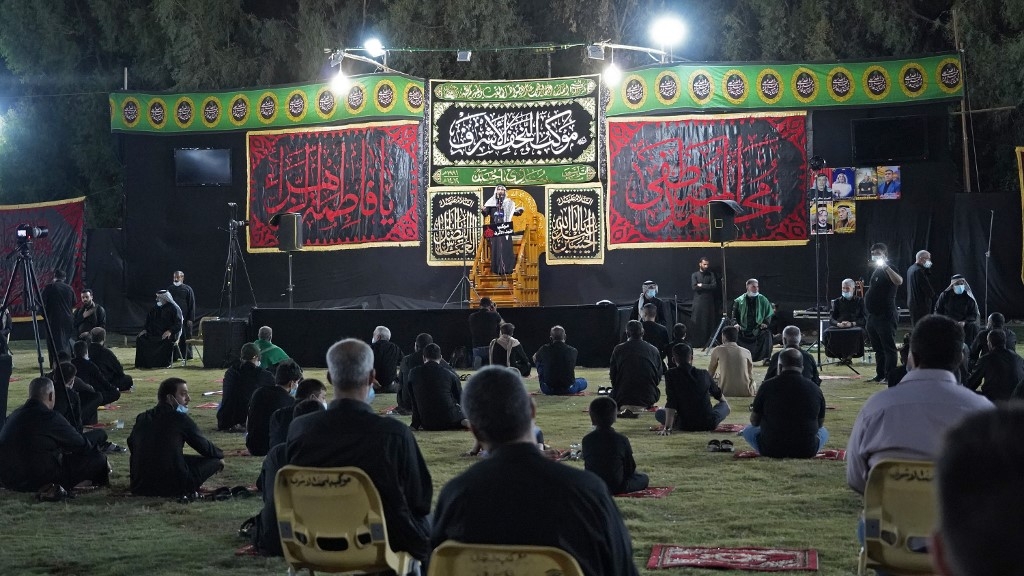
Shia pilgrims flocked to the Iraqi city of Karbala on Friday to mark the holy month of Muharram, snubbing calls to stay home as the coronavirus spreads.
The pilgrimage was expected to be one of the largest religious gatherings following the outbreak of the virus.
In the first 10 days of Muharram, the first month of the Islamic New Year, Shias mark Ashura, a time of spiritual and historical mourning, commemorating the death of the Prophet Muhammad's grandson Hussein at the battle of Karbala in 680.
Every year, millions of Shia Muslims from around the world travel to Iraq to attend commemoration ceremonies in Karbala marking the birth of their faith.
Iraqi and Iranian authorities called on citizens to not attend this year's pilgrimage because of the pandemic. Iran's Supreme Leader Ayatollah Ali Khamenei banned the usual celebrations, marches and indoor ceremonies.
New MEE newsletter: Jerusalem Dispatch
Sign up to get the latest insights and analysis on Israel-Palestine, alongside Turkey Unpacked and other MEE newsletters
In Lebanon, Hezbollah announced that no large tents would be installed and urged families to mark the occasion at home.
Meanwhile in Bahrain, Shia worshippers watched Muharram commemorations on television and online as mosque attendance was restricted by local authorities.
Non-locals barred entry
But despite warnings to avoid gathering in Karbala, thousands of pilgrims were already on their way to the golden mausoleums in the holy Iraqi city on Thursday night, some in masks and gloves but others proceeding shoulder-to-shoulder as they always had.
Small crowds of local residents gathered under the banners of Imam Hussein's mausoleum, and for the first time non-locals were banned from entering the province. However, Iraqis from other provinces managed to sneak into the city, using unmarked roads to circumvent checkpoints.
Tents had been setup in Baghdad, Basra and Karbala to greet pilgrims in an attempt to socially distance attendees.
Stickers of footprints or large crosses were placed on the ground to mark where worshippers should stand.
Iraq's Grand Ayatollah Ali al-Sistani, the top cleric for many of the world's Shias, had called for all ceremonies to be broadcast live and for the faithful to pray at home or to wear masks and keep their distance if praying in public.
Middle East Eye delivers independent and unrivalled coverage and analysis of the Middle East, North Africa and beyond. To learn more about republishing this content and the associated fees, please fill out this form. More about MEE can be found here.


